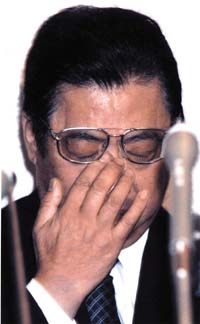 NOT EVERYONE AGREES. BUT I believe that small companies are a key to the future of this country. Big ones, to be sure, are important. Look at the products in the shop windows. They all have names on them such as Sharp, Sony or Pioneer. These are worldwide brands, the crown jewels of this country -- everyone knows that. Small startup companies cannot make cameras or cars or printers, the products for which Japan is famed. Still, the evidence suggests that small firms are crucial: 98.8 percent of the thousands of companies in Japan fall into the category of small and medium enterprises (SMEs). NOT EVERYONE AGREES. BUT I believe that small companies are a key to the future of this country. Big ones, to be sure, are important. Look at the products in the shop windows. They all have names on them such as Sharp, Sony or Pioneer. These are worldwide brands, the crown jewels of this country -- everyone knows that. Small startup companies cannot make cameras or cars or printers, the products for which Japan is famed. Still, the evidence suggests that small firms are crucial: 98.8 percent of the thousands of companies in Japan fall into the category of small and medium enterprises (SMEs).
Many are doomed. Few will succeed and make it to be giants. But the same was true half a century ago, when Sony and Honda set out on their respective paths to glory. I sense some of the same atmosphere that must have existed at that time, when I was a schoolboy on the other side of the world, and the black-and-white Japanese movies of that era painted a picture for me of a nation on fire with creativity.
Once again, there is an excitement and a get-up-and-go, to judge by the colossal increase in the numbers of SMEs in this land. The Financial Times reported the other day that, "the number of SMEs has tripled in the last 11 years," citing Goldman Sachs, a US investment bank. I have been following small companies for a while -- working with a team, I completed two books on the subject Ñ but must confess I was unaware of the explosion in the overall numbers.
The hell of it is to get started in business. Getting funds from the banks is next to impossible, preoccupied as they are with their bad loan problems and with cleaning up their atrocious balance sheets. However, there is a ferment of interest in initial public offerings, or IPOs. These new issues kept coming at a rate of 14 a month last year, despite the absolutely awful business atmosphere. By contrast, IPOs drained away in the West to almost nothing in the summer of last year, even before September 11. In 2001, there were 98 IPOs in the US and 169 in Japan, according to Tom Sato of Tokyo IPO, a company that focuses solely on IPO-related information. That is surprising. Japan, supposedly on its knees, was the scene of a torrent of IPOs, albeit for 'small caps.'
"Small companies catalyze change in big companies," says Oki Matsumoto, 38, president of Monex, one of Japan's biggest online brokers. Matsumoto knows what he is talking about: A former Goldman Sachs partner, he took his own company public in 2000 -- only a year after he started out in business -- with Sony as his largest shareholder. I can see Monex galvanizing change in its big shareholder. I can see Nobuyuki Idei, chairman of Sony, looking over Oki's shoulder at his results, and getting hints about how to run Sony. I can see him doing the same thing with Internet Initiative Japan (IIJ), a telecoms company that Sony invested in.
The thing of it is: Many big companies in Japan are disaster areas. They cannot help themselves. They are so set in their ways. They embody vested interests: those of the managers. The managers promote and featherbed each other, and drink together -- that's how they bond. They are honorable men (not a woman in sight) who have zero originality. Show them something new, and they will show you the door.
The big companies are too stuck up to care. Like the big banks. They are run by self-perpetuating hierarchies of hanko (rubber stamp) wielders. Their only strategy is to keep going slowly downwards, like so many Communist Party Politburo members in the old days of the Soviet Union and Eastern Europe. For every Sony there is an immobile heap of humanity down the road that does not and cannot move of its own volition. These latter companies are destined for the scrapheap. They are falling now. Incapable of change, they are dying of their own inertia. It is a very sad thing for the human beings who work at these firms. But it is not the end of the world. Those people have to go out and find a job with some other firm. That is what many of them are doing -- they are leaving the big companies and going their own way. Or they are being forced out. I have a friend who came to me the other day to tell me he is losing his job. He is 57. These are tough times. Individual Japanese have to make extraordinary efforts of will to pull themselves out of the gutter. This is especially true in the provinces of Japan. Willy-nilly, change is upon us. For many in the older generation -- for men over 30 even -- it is too late. All the more reason to watch those new companies, I would say. These are led by people who have seen ahead and taken huge risks along the way.
Nearly three years ago, with help from a team, I did a first book on small Japanese companies (100 Samurai Companies, published in l999 by Penguin UK). That was not enough. I wanted to do more. I conferred with Bill Emmott, the editor in chief of The Economist. We agreed that Japan's small companies are under-covered in the West. Neither of us, while serving as Tokyo correspondents, had visited more than one or two such firms. Thus, I started a collaboration, which led to a work titled "Entrepreneurial Japan: 100 Dynamic, Newly-Listed Companies" published by The Economist group.
Looking back at that work -- a 200-plus page report -- I would like to pick out 12 companies that impressed me while I did the reporting. I went solo, meeting some 59 shacho, or company presidents, mostly at their offices. This is what follows. I would like to make it clear that these are my personal choices, not those of The Economist. The magazine has been careful not to offer any ranking of companies, and I stick by the same rule. We are not analysts, offering stock picks either. In fact, we paid precious little attention to stock prices in our work. Instead, we looked at companies as living organisms, with histories and with CEOs who, on the whole, founded the firms.
SNOW COUNTRY
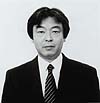 I would like to start with two companies from a part of Japan that is not normally associated with entrepreneurship, namely Niigata. This is the 'snow country' of Yasunari Kawabata, the writer. It was the stamping ground of another famous person, the politician Kakuei Tanaka. I remember 'Kaku-san' -- may his soul rest in peace; I loved the man -- as a rebarbative, unquenchable individual. He offered major entertainment value. He was worth half a dozen Kabuki stars. Perhaps, then, we should not be surprised that this terrain produced a star or two in business.
I would like to start with two companies from a part of Japan that is not normally associated with entrepreneurship, namely Niigata. This is the 'snow country' of Yasunari Kawabata, the writer. It was the stamping ground of another famous person, the politician Kakuei Tanaka. I remember 'Kaku-san' -- may his soul rest in peace; I loved the man -- as a rebarbative, unquenchable individual. He offered major entertainment value. He was worth half a dozen Kabuki stars. Perhaps, then, we should not be surprised that this terrain produced a star or two in business.
The two firms I have in mind are Hard Off and Top Culture. The first is a dealer in second-hand goods; notably TVs, discarded stereos and abandoned fridges. Anybody who can make money in such a business -- let alone in Niigata on the Japan Sea coast -- must be tough, I thought, when I first heard of this company. Yet Yoshimasa Yamamoto, 53, the president, turned out to be the gentlest of well-mannered salesmen when he came to have lunch at the Foreign Correspondents Club of Japan the other day. But just look at these numbers: In the year through March 2001, the company reported operating profit of JPY1 billion on sales of JPY4.69 billion. He handles everything from old PCs and software to furniture and books and recent recycling laws have only increased demand for his company's services.
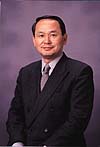 Hideo Shimizu, 48, the president of Top Culture, is another story. He struck me as the most efficient manager among the CEOs that I met and interviewed for The Economist. Shimizu, 55, brought his laptop along to the FCCJ. While we chatted, he checked that day's sales. He used his mobile for the same purpose. This man is the ultimate in terms of keeping his hands on the business he created some 15 years ago, to sell magazines, manga comic books and CDs and to rent videos. Shimizu serves on the board of Culture Convenience Club (CCC), known for its TSUTAYA brand outlets.
Hideo Shimizu, 48, the president of Top Culture, is another story. He struck me as the most efficient manager among the CEOs that I met and interviewed for The Economist. Shimizu, 55, brought his laptop along to the FCCJ. While we chatted, he checked that day's sales. He used his mobile for the same purpose. This man is the ultimate in terms of keeping his hands on the business he created some 15 years ago, to sell magazines, manga comic books and CDs and to rent videos. Shimizu serves on the board of Culture Convenience Club (CCC), known for its TSUTAYA brand outlets.
CURRYING FAVOR
 As all the world knows, there are not too many women in business in Japan. Of those I know who took their companies public last year, only one is female. She is Naomi Munetsugu, 52, and she is a ball of fire. I went down to visit her at her company, Ichibanya, just outside Nagoya. The trip was a joy. I took lunch with her and sampled her curry. With her husband Tokuji, Munetsugu owns the largest chain of curry shops in the world -- 747 in total. I know that number, because she proudly showed it to me on the wall at her office.
As all the world knows, there are not too many women in business in Japan. Of those I know who took their companies public last year, only one is female. She is Naomi Munetsugu, 52, and she is a ball of fire. I went down to visit her at her company, Ichibanya, just outside Nagoya. The trip was a joy. I took lunch with her and sampled her curry. With her husband Tokuji, Munetsugu owns the largest chain of curry shops in the world -- 747 in total. I know that number, because she proudly showed it to me on the wall at her office.
"Look, we have come through!" she said. Sure, 747 curry shops is a lot of curry shops. Some are franchises, some not. Mostly they are in Japan, four are in Hawaii, or were at the time of writing -- the numbers are going up every week. Two things that she told me are worth repeating: Her son is not going into the business; he wants to be a professional golfer -- he was out on a course with his coach the day I was down there. Nothing burdens a family business more than offspring who do not have it in them to concentrate l00 percent on the job. Second: Husband Tokuji, "gets up every morning at 4am," according to his wife. "He goes through the cards received each day from customers at our hundreds of curry shops. He reads every one." Munetsugu showed me a thick pack of postcards that had arrived that morning. I like it.
AGAINST THE GRAIN
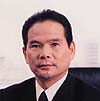 The story that you will hear is that real estate in Japan is still falling in value. Anyone who went against the trend got nailed to the wall. Property prices still have some way to go before they find a bottom. The negative sentiment is huge. I admire people who have gone against the trend, succeeding against the odds. I particularly respect those who have started companies and gone up against the tide during the l990s, a horrible decade for the real estate business. It took courage to do that. Dix Kuroki, a Fukuoka-based firm, and Zephyr, a Tokyo-based company, found similar ways to beat the slump; they concentrated on condominium projects. Japan is full of rich people, many of whom are looking for ways to invest in property. Usually, almost always, what they want is something they can live in themselves or rent to relatives. That means a condo.
The story that you will hear is that real estate in Japan is still falling in value. Anyone who went against the trend got nailed to the wall. Property prices still have some way to go before they find a bottom. The negative sentiment is huge. I admire people who have gone against the trend, succeeding against the odds. I particularly respect those who have started companies and gone up against the tide during the l990s, a horrible decade for the real estate business. It took courage to do that. Dix Kuroki, a Fukuoka-based firm, and Zephyr, a Tokyo-based company, found similar ways to beat the slump; they concentrated on condominium projects. Japan is full of rich people, many of whom are looking for ways to invest in property. Usually, almost always, what they want is something they can live in themselves or rent to relatives. That means a condo.
I have not met the founders of these firms -- Toru Kuroki, 46, and Takao Ioka, 42 -- but I have been in contact by phone with both companies probably a dozen times to check out their information. It is, of course, best to meet the boss. If you can't do that, though, a succession of phone calls can tell a lot. Both these men have infused their firms with a snap, crackle and pop.
Kuroki speaks of coming up to Tokyo to try his luck. Ioka has the sharpest investor relations person -- Yayoi Suzuki -- of all the IR people I dealt with at small companies last year. These outfits must be doing something right in the face of the bloodbath in real estate values. As I said, it is their condominium strategies.
'GROUPWARE' TO THE WORLD
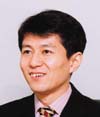 I like a company whose story I can understand for myself, without huge technical explanations. Cybozu is a favorite of mine, because I could immediately understand what
I like a company whose story I can understand for myself, without huge technical explanations. Cybozu is a favorite of mine, because I could immediately understand what
Toru Takasuka, 35, the president, said about his decision to create the firm. He was working originally at Matsushita in Osaka, where his speciality was 'groupware,' or Web-based collaborative office software. Unfortunately, the manuals he was asked to use were hugely complex, sprawling affairs that took months to read. There was something wrong, Takasuka concluded. To make his story short: He left National with two colleagues to form their own company that offers software presented in a simple way. He got an excellent response and, within four years, he decided to move up to Tokyo. I loved the atmosphere in his office -- the enthusiasm, the freshness. I was impressed by Cybozu's easy-to-understand Web site, and by the company's ambitions to go global. The company is still small -- it reported operating profit of JPY435 million in the year through January 2001. But it is the one I chose to recommend to a nephew in the UK who wanted to put a little money into a newly listed Japanese firm.
IF THE BOSS IS OK...
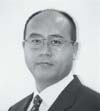 Probably you are the same. When I visit a company, I sniff the air. Is it good or is it bad or is it only so-so? If the people are happy, then I know that they are content with their boss. Happiness may not be everything, but it sure helps if you have to get up every day at 5:30am and ride the public transport system for an hour or two to get to work. No one is fooled by artifice at work -- the endless serving of cups of tea for visitors on bended knee.
Probably you are the same. When I visit a company, I sniff the air. Is it good or is it bad or is it only so-so? If the people are happy, then I know that they are content with their boss. Happiness may not be everything, but it sure helps if you have to get up every day at 5:30am and ride the public transport system for an hour or two to get to work. No one is fooled by artifice at work -- the endless serving of cups of tea for visitors on bended knee.
I met last year with 59 shacho of small, newly-listed companies. I found not a few firms that met my Panglossian criterion (Dr. Pangloss, a creation of the French writer Voltaire, the author of Candide, opined that "all is for the best in this best of all possible worlds"). Let me mention one: The company has its office in Shinjuku, and its name is Tokyo Financial Planners. What does the company do? It offers classes for the public on how to manage personal finances. Norito Kawada, 38, the ebullient, bald-headed president, told me that his firm has 63 competitors in Japan. He claimed to be the best. Well now, wait a moment. Japan is home to the largest pool of personal savings in the world. This company could have a role to play? Possibly! What sold me was the good cheer of the staff -- and TFP's decent numbers: It had operating profit of JPY336.45 million on sales of JPY2.35 billion in the year through March 2001.
HUGE SALES, TINY OFFICE
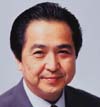 Every now and again a shacho will impress one. He will be quiet, patient, observant -- a glutton for detail. He gets on with the job. Then, you look at the company's numbers. I called on Michio Fukuda, 54, at the head office of POINT in out-of-the-way Sumida ward, Tokyo. Then I looked at his numbers. He is running a half-billion-dollar sales operation out of a tiny back office. His specialty is 'fashion casual' clothing. If you want a take on the rag trade in Japan, here is your man. I was struck by the quiet achievement of this second generation tailor's son from Mito, Ibaraki. A little modesty can still take you a long way in business, I believe.
Every now and again a shacho will impress one. He will be quiet, patient, observant -- a glutton for detail. He gets on with the job. Then, you look at the company's numbers. I called on Michio Fukuda, 54, at the head office of POINT in out-of-the-way Sumida ward, Tokyo. Then I looked at his numbers. He is running a half-billion-dollar sales operation out of a tiny back office. His specialty is 'fashion casual' clothing. If you want a take on the rag trade in Japan, here is your man. I was struck by the quiet achievement of this second generation tailor's son from Mito, Ibaraki. A little modesty can still take you a long way in business, I believe.
IT'S ALL IN THE NAME
No doubt you know this too. The person who has done the most to blast a breath of fresh air through Japanese business in the past few years has been Masayoshi Son, the prickly founder of Softbank. He is anything but an easy person to be around. But basically, like you and me, he is a shy chap. Having billions to his name has probably made him shyer than he was at the beginning. In any event, getting to meet him these days is not so easy. It is harder still to stay in his presence. Son, bless his heart, will escort one out of his inner sanctum at Hakozaki at the speed of light. Well, more power to the dealmaker of our time.
Not that everyone likes him. Nobuyuki Idei, chairman of Sony, is said to curl up at the mention of Son. I don't think we need to be involved in personal likes and dislikes in business. The question is what has he done? To my mind, he is an investor. He has a distinct knack for putting his money in interesting places (notably Yahoo! Japan). Last year I visited four companies that Son invested in. They were all joint ventures and/or companies run by people recruited from outside Softbank. I liked them all. They were venture capital company Softbank Investment run by Yoshitaka Kitao, 51; Morningstar Japan, run by Katsuya Kawashima, 38, an ex-Nomura man; cyber communications, a joint venture with Dentsu, run by Toshio Arai, 48; and E*Trade Japan, a brokerage house run by yet another ex-Nomura chap, Taro Izuchi, 45. There's strictly nothing personal in this, but of the four the one I liked best was Morningstar Japan. It's all in the name, the brand. Morningstar, a mutual fund rating organization out of Chicago, tied up with Softbank in l998. It has established itself as the authoritative name in the field here, even in that very short time, with a minute staff -- just 25 or so last time I checked. One other company I visited last year, Oricon GlobalEntertainment, has a brand name par excellence. Such firms are a joy to behold, I say. @
|
 NOT EVERYONE AGREES. BUT I believe that small companies are a key to the future of this country. Big ones, to be sure, are important. Look at the products in the shop windows. They all have names on them such as Sharp, Sony or Pioneer. These are worldwide brands, the crown jewels of this country -- everyone knows that. Small startup companies cannot make cameras or cars or printers, the products for which Japan is famed. Still, the evidence suggests that small firms are crucial: 98.8 percent of the thousands of companies in Japan fall into the category of small and medium enterprises (SMEs).
NOT EVERYONE AGREES. BUT I believe that small companies are a key to the future of this country. Big ones, to be sure, are important. Look at the products in the shop windows. They all have names on them such as Sharp, Sony or Pioneer. These are worldwide brands, the crown jewels of this country -- everyone knows that. Small startup companies cannot make cameras or cars or printers, the products for which Japan is famed. Still, the evidence suggests that small firms are crucial: 98.8 percent of the thousands of companies in Japan fall into the category of small and medium enterprises (SMEs).


 I would like to start with two companies from a part of Japan that is not normally associated with entrepreneurship, namely Niigata. This is the 'snow country' of Yasunari Kawabata, the writer. It was the stamping ground of another famous person, the politician Kakuei Tanaka. I remember 'Kaku-san' -- may his soul rest in peace; I loved the man -- as a rebarbative, unquenchable individual. He offered major entertainment value. He was worth half a dozen Kabuki stars. Perhaps, then, we should not be surprised that this terrain produced a star or two in business.
I would like to start with two companies from a part of Japan that is not normally associated with entrepreneurship, namely Niigata. This is the 'snow country' of Yasunari Kawabata, the writer. It was the stamping ground of another famous person, the politician Kakuei Tanaka. I remember 'Kaku-san' -- may his soul rest in peace; I loved the man -- as a rebarbative, unquenchable individual. He offered major entertainment value. He was worth half a dozen Kabuki stars. Perhaps, then, we should not be surprised that this terrain produced a star or two in business.
 Hideo Shimizu, 48, the president of Top Culture, is another story. He struck me as the most efficient manager among the CEOs that I met and interviewed for The Economist. Shimizu, 55, brought his laptop along to the FCCJ. While we chatted, he checked that day's sales. He used his mobile for the same purpose. This man is the ultimate in terms of keeping his hands on the business he created some 15 years ago, to sell magazines, manga comic books and CDs and to rent videos. Shimizu serves on the board of Culture Convenience Club (CCC), known for its TSUTAYA brand outlets.
Hideo Shimizu, 48, the president of Top Culture, is another story. He struck me as the most efficient manager among the CEOs that I met and interviewed for The Economist. Shimizu, 55, brought his laptop along to the FCCJ. While we chatted, he checked that day's sales. He used his mobile for the same purpose. This man is the ultimate in terms of keeping his hands on the business he created some 15 years ago, to sell magazines, manga comic books and CDs and to rent videos. Shimizu serves on the board of Culture Convenience Club (CCC), known for its TSUTAYA brand outlets.
 As all the world knows, there are not too many women in business in Japan. Of those I know who took their companies public last year, only one is female. She is Naomi Munetsugu, 52, and she is a ball of fire. I went down to visit her at her company, Ichibanya, just outside Nagoya. The trip was a joy. I took lunch with her and sampled her curry. With her husband Tokuji, Munetsugu owns the largest chain of curry shops in the world -- 747 in total. I know that number, because she proudly showed it to me on the wall at her office.
As all the world knows, there are not too many women in business in Japan. Of those I know who took their companies public last year, only one is female. She is Naomi Munetsugu, 52, and she is a ball of fire. I went down to visit her at her company, Ichibanya, just outside Nagoya. The trip was a joy. I took lunch with her and sampled her curry. With her husband Tokuji, Munetsugu owns the largest chain of curry shops in the world -- 747 in total. I know that number, because she proudly showed it to me on the wall at her office.
 The story that you will hear is that real estate in Japan is still falling in value. Anyone who went against the trend got nailed to the wall. Property prices still have some way to go before they find a bottom. The negative sentiment is huge. I admire people who have gone against the trend, succeeding against the odds. I particularly respect those who have started companies and gone up against the tide during the l990s, a horrible decade for the real estate business. It took courage to do that. Dix Kuroki, a Fukuoka-based firm, and Zephyr, a Tokyo-based company, found similar ways to beat the slump; they concentrated on condominium projects. Japan is full of rich people, many of whom are looking for ways to invest in property. Usually, almost always, what they want is something they can live in themselves or rent to relatives. That means a condo.
The story that you will hear is that real estate in Japan is still falling in value. Anyone who went against the trend got nailed to the wall. Property prices still have some way to go before they find a bottom. The negative sentiment is huge. I admire people who have gone against the trend, succeeding against the odds. I particularly respect those who have started companies and gone up against the tide during the l990s, a horrible decade for the real estate business. It took courage to do that. Dix Kuroki, a Fukuoka-based firm, and Zephyr, a Tokyo-based company, found similar ways to beat the slump; they concentrated on condominium projects. Japan is full of rich people, many of whom are looking for ways to invest in property. Usually, almost always, what they want is something they can live in themselves or rent to relatives. That means a condo.
 I like a company whose story I can understand for myself, without huge technical explanations. Cybozu is a favorite of mine, because I could immediately understand what
I like a company whose story I can understand for myself, without huge technical explanations. Cybozu is a favorite of mine, because I could immediately understand what
 Probably you are the same. When I visit a company, I sniff the air. Is it good or is it bad or is it only so-so? If the people are happy, then I know that they are content with their boss. Happiness may not be everything, but it sure helps if you have to get up every day at 5:30am and ride the public transport system for an hour or two to get to work. No one is fooled by artifice at work -- the endless serving of cups of tea for visitors on bended knee.
Probably you are the same. When I visit a company, I sniff the air. Is it good or is it bad or is it only so-so? If the people are happy, then I know that they are content with their boss. Happiness may not be everything, but it sure helps if you have to get up every day at 5:30am and ride the public transport system for an hour or two to get to work. No one is fooled by artifice at work -- the endless serving of cups of tea for visitors on bended knee.
 Every now and again a shacho will impress one. He will be quiet, patient, observant -- a glutton for detail. He gets on with the job. Then, you look at the company's numbers. I called on Michio Fukuda, 54, at the head office of POINT in out-of-the-way Sumida ward, Tokyo. Then I looked at his numbers. He is running a half-billion-dollar sales operation out of a tiny back office. His specialty is 'fashion casual' clothing. If you want a take on the rag trade in Japan, here is your man. I was struck by the quiet achievement of this second generation tailor's son from Mito, Ibaraki. A little modesty can still take you a long way in business, I believe.
Every now and again a shacho will impress one. He will be quiet, patient, observant -- a glutton for detail. He gets on with the job. Then, you look at the company's numbers. I called on Michio Fukuda, 54, at the head office of POINT in out-of-the-way Sumida ward, Tokyo. Then I looked at his numbers. He is running a half-billion-dollar sales operation out of a tiny back office. His specialty is 'fashion casual' clothing. If you want a take on the rag trade in Japan, here is your man. I was struck by the quiet achievement of this second generation tailor's son from Mito, Ibaraki. A little modesty can still take you a long way in business, I believe.



